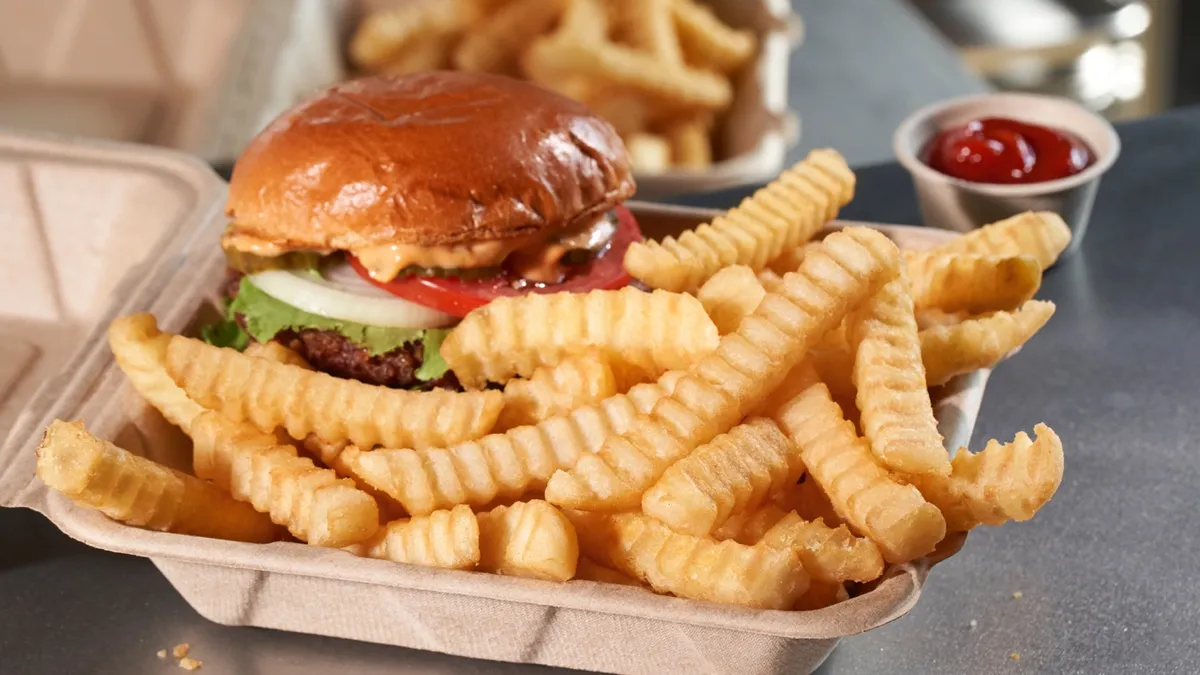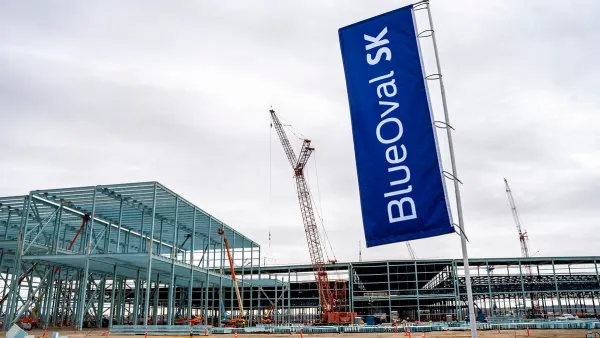Dive Brief:
- Potato product supplier Lamb Weston has encountered production constraints following higher demand for batter-coated products, President and CEO Tom Werner said on a Jan. 5 earnings call.
- To produce batter-coated fries, the company typically runs its production lines at slower speeds compared to uncoated fries, resulting in lower throughput, he said. More frequent and longer downtimes to clean and sanitize lines when batter is used also impacts production line run-rates and availability.
- "Together, this results in fewer finished pounds produced relative to making uncoated fries, which ultimately leads to pressure on our customer order fill rates," Werner said. Despite these capacity issues, he added that batter-coated products generally carry strong margins that will help Lamb Weston's profitability going forward.
Dive Insight:
Lamb Weston's production hurdles underscore the operational challenges that can come when pushing to fulfill newfound demand for a product.
"We have to slow lines down when we're making coated product," Werner said. "So we can't run as fast. And so, there [are] some capacity disadvantages to running premium products."
The company saw sales volume decline 3% in the second quarter, which it attributed to "an inability to fully serve customer demand" within its foodservice and retail segments.
To fulfill growing demand, many food companies are acquiring existing plants or building new ones. Lamb Weston is investing in production capacity as well — Werner noted that meeting demand will continue to be a challenge until investments in Idaho, China and Argentina come online.
Beyond adjusting to customers' changing needs, Werner said onboarding newly hired employees and ongoing commodity shortages will continue to pressure Lamb Weston's ability to meet demand through the remainder of fiscal year 2023.
This adds to the supply chain-related stress the company has dealt with in recent quarters. CFO Bernadette Madarieta said in April that lines slowed to accommodate lower-quality potatoes tied to a poor fall harvest. Labor shortfalls at processing plants has also been an issue, but Werner said on the Jan. 5 call that staffing is back to desired levels at most facilities.
"There are still challenges within our network to produce and get back to the levels where we were pre-pandemic," Werner said. "And the team, the supply chain team, is working on that. And it's going to take us the balance of this year to continue to focus on things to improve that."
This story was first published in our Operations Weekly newsletter. Sign up here.















